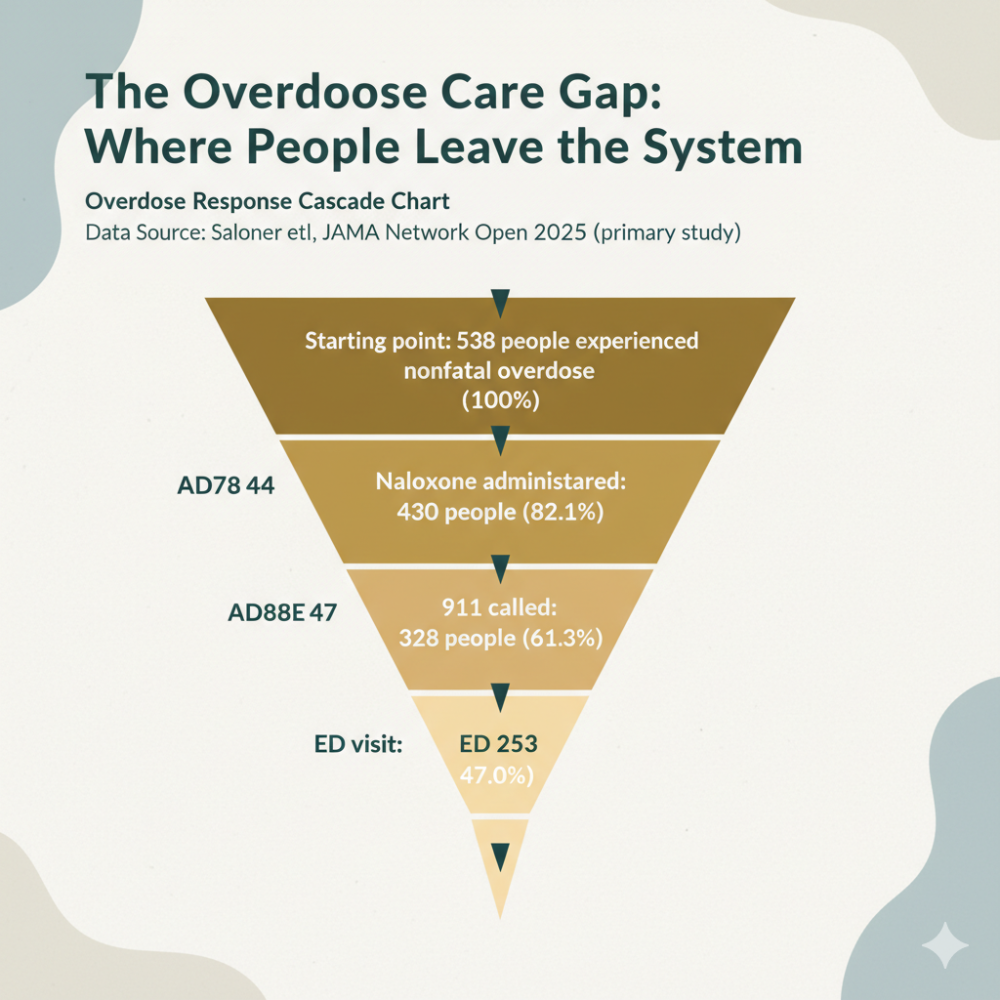The Dangers of Combining Alprazolam (Xanax®) & Alcohol
Understanding the risks associated with mixing substances like Alprazolam (Commonly referred to by the brand name Xanax) and alcohol is critical.
According to the Substance Abuse and Mental Health Services Administration (SAMHSA), Every year, there are more than 27,000 emergency room visits for co-occurring benzodiazepine and alcohol.
Even though these substances might be commonplace in many people’s lives, combining them can have dangerous—even fatal—consequences.
What is Xanax (Alprazolam)?
Known scientifically as Alprazolam, Xanax belongs to the family of drugs called benzodiazepines. It is often administered as a prescription medication for behavioral health conditions such as anxiety disorders and panic disorders. Xanax works as a potent sedative, invoking feelings of calm and relaxation in its users during anxiety or panic attacks.
However, like any other potent substance, it also carries its share of risks. In 2018, nearly 17.7 million people aged 12 or older used Xanax; of that, 1 million people were misusing it. In fact, In the last decade, Xanax is one of the most common benzodiazepines involved in drug-related emergency room visits.
Alcohol Consumption
Though alcohol is a widely accessible substance often used socially and can be enjoyed responsibly, 29.5 million people ages 12 and older struggled with Alcohol Use Disorder (AUD) in 2021. Alcohol can be particularly harmful when the amount of alcohol is not monitored closely or when it’s consumed in combination with other substances such as Xanax.
The Effects of Xanax
As a central nervous system depressant, Xanax operates by reducing the activity in your brain. This decrease in brain activity results in reduced symptoms of anxiety and panic, providing temporary relief for individuals dealing with these conditions.
Immediate Side Effects of Xanax
Xanax’s short-term effects can appear as a sense of deep relaxation, reduced anxiety, and a feeling of drowsiness. However, the prescription drug also has a darker side, with immediate effects potentially including memory issues, a lack of coordination, slowed heart rate, slurred speech, and the risk of overdose if the dose of Xanax taken isn’t in line with that of the prescription.
Prolonged Xanax Use
Long-term Xanax use can have far-reaching consequences, leading to scenarios such as Xanax addiction, physical dependence, and Xanax withdrawal symptoms upon cessation. Xanax can even cause cognitive deficits that persist long after the user has stopped taking the drug.
The Impact of Alcohol
Like Xanax, alcohol is also a depressant. It slows down the functions of the central nervous system and alters brain functioning.
Short-lived Side Effects of Alcohol
In the short run, drinking alcohol can cause a range of effects, from minor mood alterations and impaired motor control to severe complications like blackouts and alcohol poisoning.
Chronic Side Effects of Alcohol
Chronic alcohol consumption can lead to an array of health complications. These include serious illnesses like liver disease, heart disease, cognitive impairment, high blood pressure, and even addiction.
Dangers of Mixing Xanax and Alcohol
The combination of Xanax and alcohol can exacerbate the sedative effects of both substances, potentially leading to life-threatening situations.
Symptoms of Mixing Alcohol and Xanax
When someone mixes Xanax and alcohol, the combination can create a unique set of symptoms due to their similar depressant effects. Both substances independently cause a slowdown of various bodily processes, and together they amplify these effects.
A Xanax overdose is a large enough problem as it is. Adding alcohol to the mix is a recipe for disaster. Recognizing these symptoms can be critical for seeking immediate medical attention and preventing serious harm.
Physical Symptoms
- Extreme Drowsiness: Both Xanax and alcohol cause sedation. When combined, the sedative effects are amplified, leading to extreme drowsiness and fatigue.
- Slurred Speech: Difficulty in articulating words clearly is a common symptom. The combination of Xanax and alcohol impairs cognitive function and muscle coordination, often resulting in slurred speech.
- Lack of Coordination: With the central nervous system suppressed, motor skills can become compromised. This can cause difficulty with balance, walking, or performing other physical tasks.
- Respiratory Distress: Slow, shallow, or difficulty breathing is a critical symptom, indicating the depressant effects of Xanax and alcohol on the body’s respiratory system. This can lead to respiratory failure in extreme cases.
- Blurred or Double Vision: The combination of Xanax and alcohol can impact vision, causing it to blur or double.
Behavioral and Cognitive Symptoms
- Confusion or Disorientation: The slowed brain activity from using both Xanax and alcohol can cause cognitive disruptions, leading to a state of confusion or disorientation.
- Memory Problems: One might experience difficulty in remembering events that occur while under the influence of both substances. In severe cases, it can lead to ‘blackouts’ or periods of memory loss.
- Mood Swings: Sudden and unpredictable changes in mood or affect can occur, often as a result of the substances’ impact on the brain’s chemical balance.
- Impaired Judgment: As both substances alter cognitive functioning, one’s ability to make sound decisions can be significantly impaired.
- Increased Risk-Taking Behavior: The lowered inhibitions and poor judgment may result in risk-taking behavior that an individual wouldn’t usually engage in, such as driving while impaired.
Life-threatening Symptoms
- Loss of Consciousness: High levels of Xanax and alcohol can cause someone to pass out or fall into a coma.
- Seizures: Both substances, particularly Xanax, can cause seizures, especially during withdrawal or when consumed in high doses.
It’s vital to note that these symptoms can range from mild to severe, and even mild symptoms can quickly escalate. If you notice any of these symptoms in someone who has mixed Xanax and alcohol, seek immediate medical attention.
Long-Term Implications
In the long run, the combination can increase the risk of developing an addiction, lead to significant brain damage, cause severe liver disease, and exacerbate mental health disorders such as depression and anxiety.
Acknowledging the Issue and Seeking Help
The first step on the road to recovery is acknowledging the existence of a problem. If you or a loved one are grappling with substance abuse, it’s vital to seek professional help.
Recognizing the Signs
Acknowledging the issue involves recognizing tell-tale signs like increased tolerance, withdrawal symptoms, and behavioral changes.
Exploring Treatment Options
There are multiple avenues for treatment, each tailored to the individual’s needs and circumstances. These can range from medication-assisted treatment centers to therapy and counseling services.
Medication-assisted Treatment
Medication can be an effective part of drug addiction treatment, easing the discomfort of withdrawal symptoms and reducing cravings. This allows the individual to focus on the other aspects of their recovery.
Therapy and Counseling
Therapy and counseling can provide the much-needed platform for individuals to understand their addiction, develop coping mechanisms, and build a robust support network for times of stress or temptation.
Get help for Substance Use Disorder
Mixing Xanax and alcohol is a dangerous gamble that can lead to severe, potentially life-threatening consequences. It’s crucial to remember that help and support are available for those struggling with substance abuse. Don’t hesitate to reach out to a healthcare professional or join a support group.
The road to recovery may be challenging, but it’s a journey worth taking for a healthier, safer future. At Gallus Detox, we offer a multitude of treatment programs to lead individuals suffering from Alcohol Use Disorder (AUD), Benzodiazepine use. and other substance use disorders into recovery. Contact us today to learn more.


 Steve B
Steve B 
